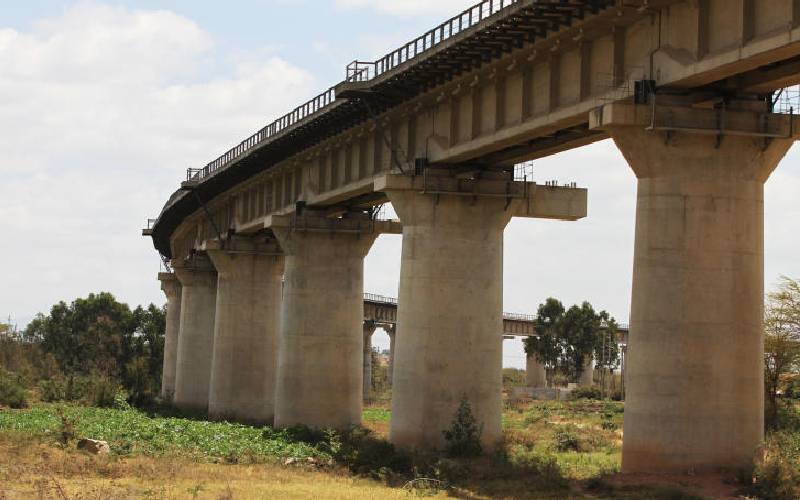×
The Standard e-Paper
Kenya’s Boldest Voice

A section of Standard Gauge Railway (SGR) near Kitengela area along Mombasa road.[Elvis Ogina,Standard]
Kenya is expected to pay China $325.6 million (Sh35.2 billion) by end of this month, a situation that will eat into its bumper harvest of foreign exchange (forex) reserves in the last few weeks.